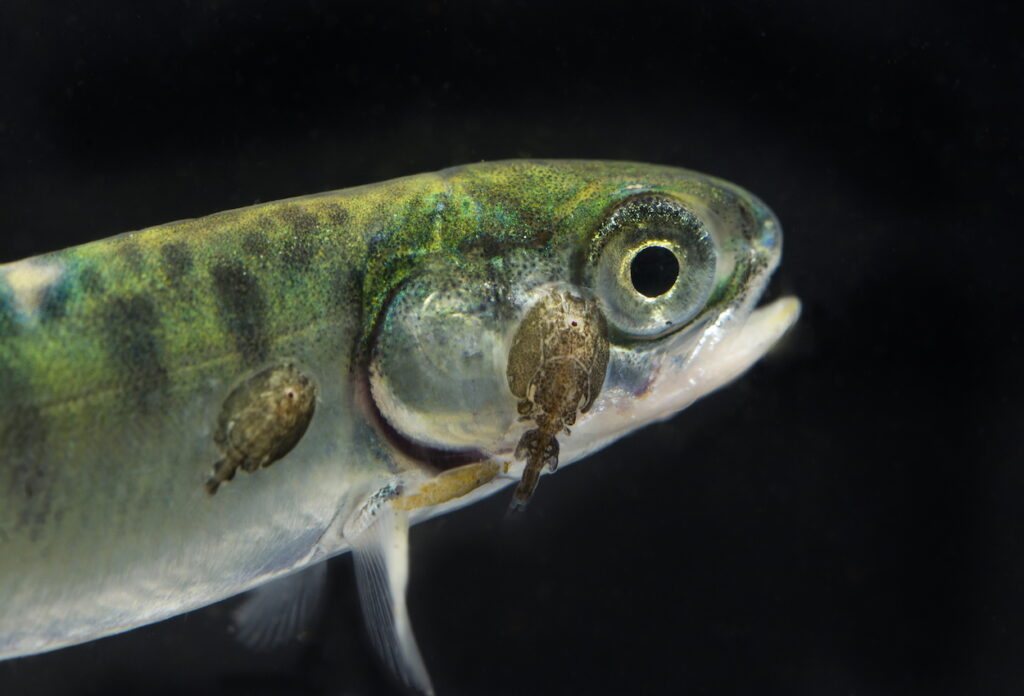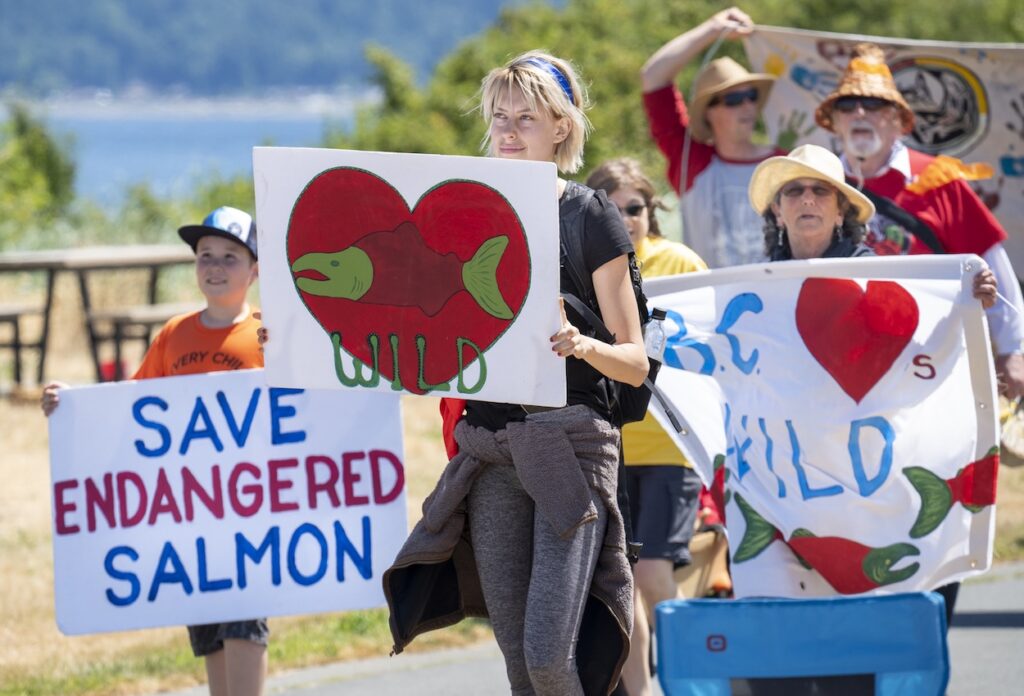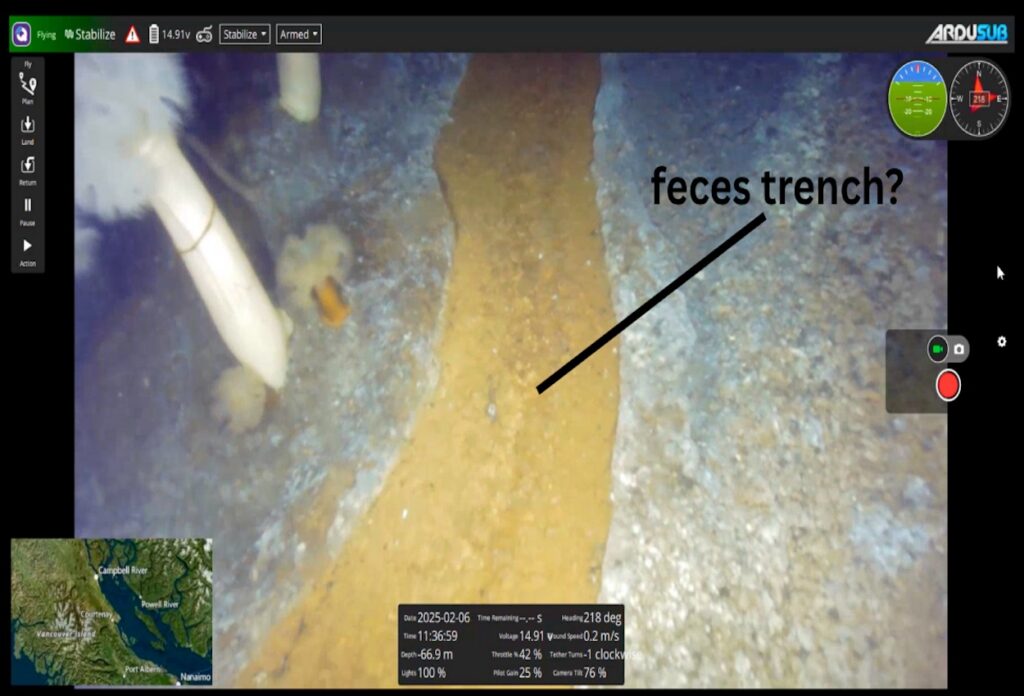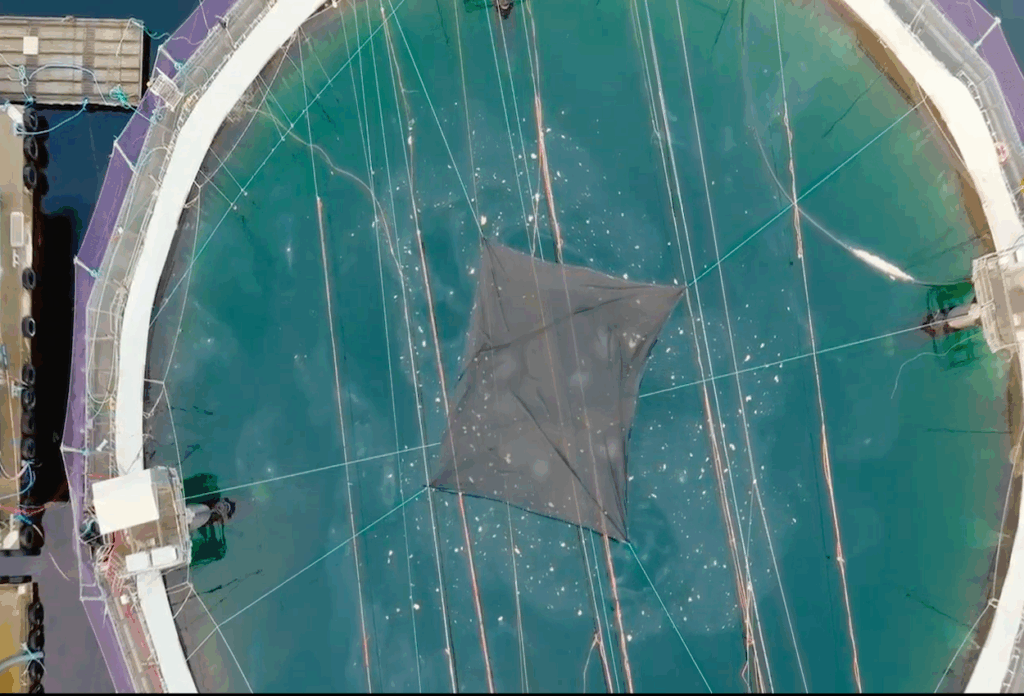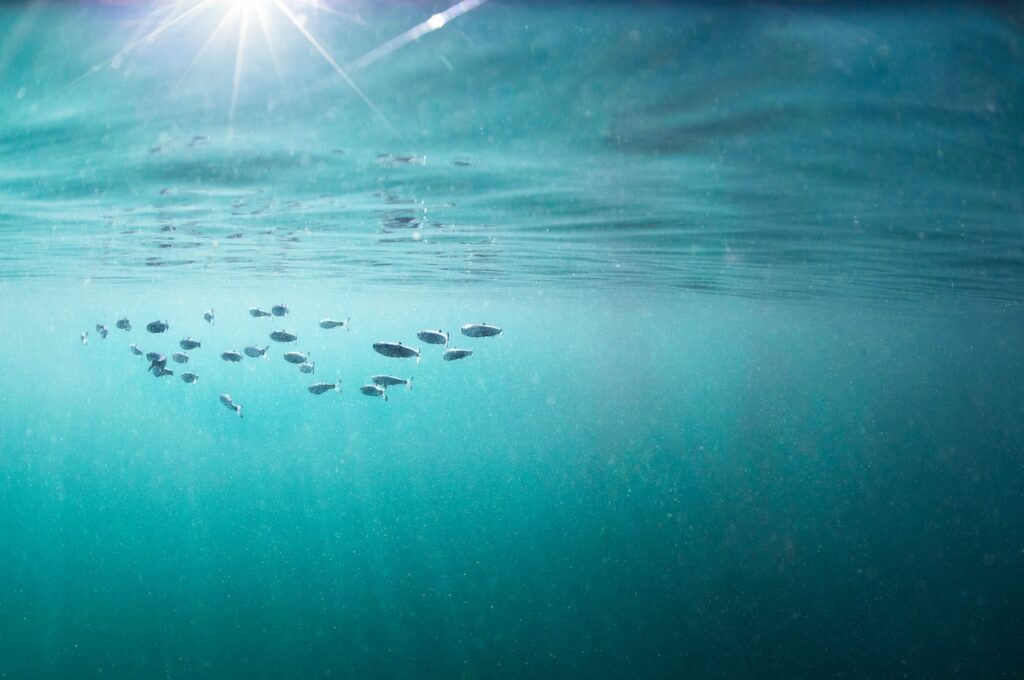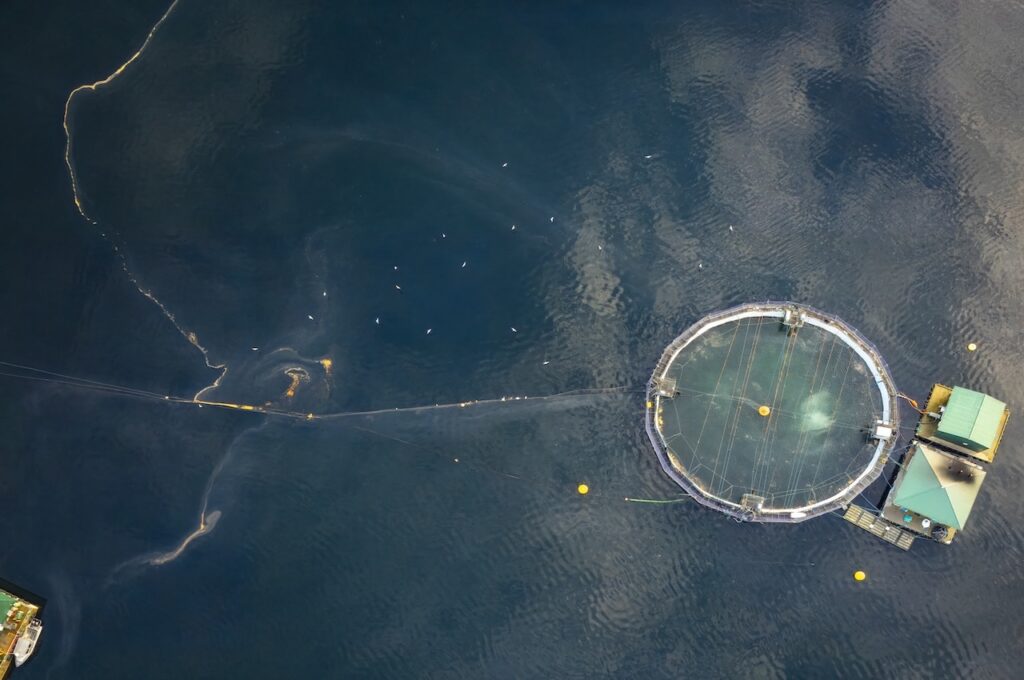The Carnival Marching Band was belting out tunes last Saturday as we began marching from City Hall. Five thousand people flooded the streets of Vancouver in advance of Prime Minister Trudeau’s decision on Kinder Morgan’s pipeline expansion plans. As we crossed the Cambie Street Bridge a massive chant rose up: “Hey hey, Trudeau, Kinder Morgan’s got to go!” It was exhilarating to be together with so many people who are determined to ensure that this pipeline is never built.
Coastal communities on the frontline
A Clayoquot Action contingent made our way down from Tofino to join this massive pipeline protest—because coastal communities like Tofino, Esowista, Ahousaht, and Hot Springs Cove are on the front lines. Long Beach is less than 50 kilometres from the proposed tanker route. This places Clayoquot Sound outside of K-M’s designated Enhanced Area of Response, which means if a spill were to occur, no assistance would be coming for the first 72 hours.
Last time there was an oil spill on the west coast of Vancouver Island, governments bickered about whose jurisdiction the cleanup was. Meanwhile, locals had to roll up their sleeves and start picking up dead and dying seabirds, and giant blobs of oil. The 1988 Nestucca spill was tiny—just 5,500 barrels of oil. Yet it killed 56,000 seabirds. The disaster was traumatic to live through, and its longterm social and economic impacts have never been measured.
Oil spills cannot be cleaned up
From the Nestucca to the 2015 spill in English Bay, and again this fall with the Nathan Stewart spill in Heiltsuk territory near Bella Bella, governments demonstrate again and again that they are completely unprepared to deal with an oil spill of any size. Imagine if Trudeau were to approve Kinder Morgan—there could be more than a super tanker per day carrying 1,000,000 barrels of oil under the Lions Gate and Ironworkers bridges in Vancouver. These tidal rapids are difficult to navigate, and more than one ship has hit the Second Narrows Bridge.
Tsleil-Watuth First Nations elder Amy George, who was arrested on Burnaby Mountain, spoke to the rally before the march last Saturday. She spoke of seeing her territories greatly diminished in the past half century, and her fears for what could happen if this pipeline expansion were allowed to proceed, saying “We cannot let that happen, we must not let that happen”.
Overseas markets pay less for bitumen
This fossil fuel infrastructure isn’t even needed. Former CIBC chief economist Jeff Rubin explained in the Globe & Mail recently why building Kinder Morgan’s pipeline will not solve Alberta’s economic woes: “…nowhere in the world does bitumen capture the price of conventional light oil. The oil sands crude is an inferior fuel requiring significantly more upgrading and refining before it can be converted into finished products…contrary to industry claims for desperately needed new pipelines to tidewater, overseas markets typically pay less for bitumen and other forms of heavy oil than the U.S. Gulf Coast, home to the world’s largest heavy-oil refinery hub.
One of Canada’s top energy experts, David Hughes, recently reached the same conclusion: “The assertion by politicians that tidewater access enabling overseas exports will somehow confer a significant price premium for Canadian oil is therefore not supported by the facts.”
No way to meet Paris commitments if oil production expands
In a recent report for the Canadian Centre for Policy Alternatives, Hughes showed (using public data from Environment Canada and the National Energy Board) that there is no way Canada can meet its Paris climate commitments and expand oil production. He told the TheTyee.ca that “Maintaining the notion that only ever-expanded exports can rescue the Canadian economy ignores fundamental price realities as well as eliminates any chance that Canada will meet its emission-reduction targets under COP21.”
If Canada’s oil and gas emissions rise from 26 per cent of Canada’s total in 2014, to 45 per cent by 2030, as forecasted by the National Energy Board, the rest of the economy would be forced to contract its emissions by 47 per cent in order to meet promised greenhouse gas reduction targets.
He also found that no new pipelines are needed if Alberta keeps its promise to cap tar sands production at 100 megatonnes per year, concluding that “The additional pipelines being lobbied for by industry and governments are therefore not necessary.”
Take the pledge
Grand Chief Stewart Phillip spoke at the rally wrap-up at Library Square. The Union of BC Indian Chiefs has just launched a website where you can take a pledge to stop Kinder Morgan’s pipeline. Please take a moment to add your name to the growing number of people who will hold Trudeau accountable to the promises he made last year to work towards reconciliation with First Nations, to work for youth, and to protect the environment.
Dan Lewis is Executive Director of Clayoquot Action.
